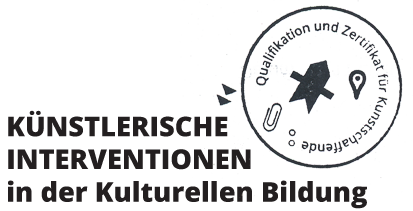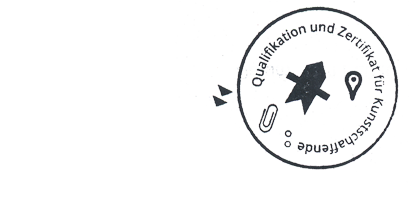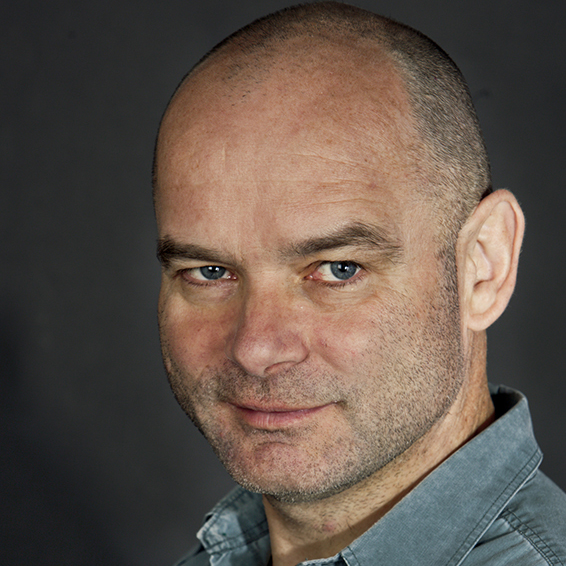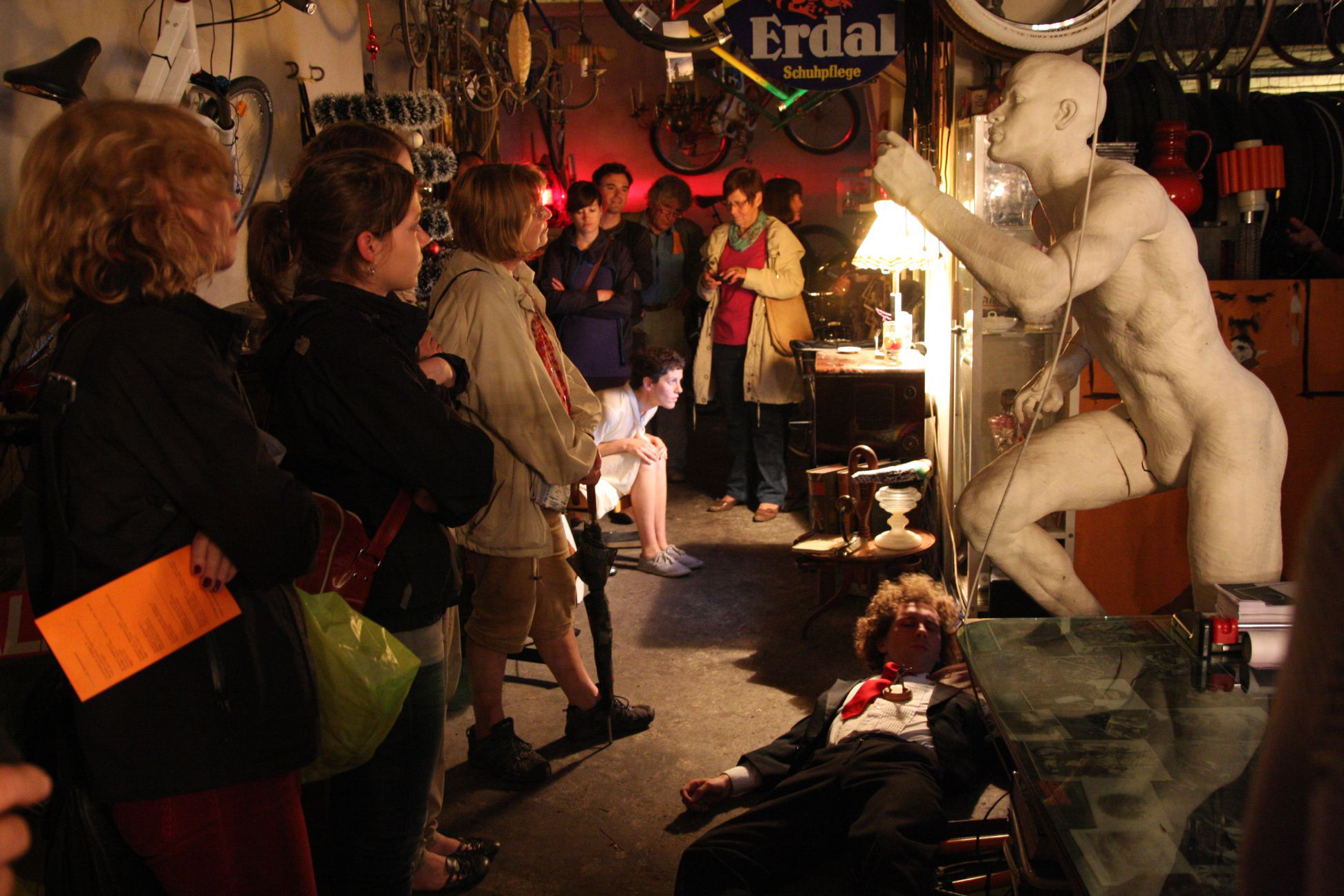



Olek Konrad Witt is a theatre director, performer, actor and theatre pedagogue. He was born in Poland and emigrated to Germany in 1978. Witt studied philosophy, sociology and political science at universities in Heidelberg, London and Berlin. Having graduated as a diploma politologist, he studied dancing and drama at the Academy for Visual Art in Poznan and at the Berlin Theatre Academy. In 1995, he founded the “Theater am Ende” and created Site-specific Performances. Witt engages in promoting creative potential among children and youths, and in 2003, he founded the Ensemble “spinaTheater”, and in 2008, in Berlin, the intercultural group “Theater der Migranten” (theatre of migrants). With the Dresden collective “re-Publik Performance”, he realises projects on memory culture.
Contact:
Change of location – scenes from the life of a city

The production “Ortswechsel. Szenen aus dem Leben einer Stadt” by the “Theater der Migranten” takes the audience on a trip around the streets and the hauses of the “Reuterkiez” district in Berlin-Neukölln. The spectators walk in groups and experience drama as a parcours around familiar and unfamiliar places. There, young actors of the multicultural ensemble have developed exciting, very musical and sometimes also bizarre scenes. Whether it be a Turkish barber, a Polish bookstore, a German bicycle shop or a Brazilian cafe – each of these places is a stage which is perfomed on in a wide range of ways by the artists. Here, the boundaries between fiction and reality are fluid. Drama thus becomes a form of expressing multi-layered everyday culture.
What have you taken home from this project for your artistic activities?
This project was an encouraging experiment which taught me how social art can work. Art as a participatory, low-threshold intervention in a public space. It was an experience full of insights to perform with a multicultural team in different locations of an urban district. With their historical and social backgrounds, with their authentic everday backdrops, these locations are a source of inspiration for a collaborative inventing of stories in which all players can participate, contribute their wide range of skills and have great fun.
Which topic turns up again and again in your artistic activities?
Following Joseph Beuys’ motto that “everyone is an artist”, I again and again concentrate on promoting the creative potential of children and youths. I apply Devising Theatre methods in developing performances. The central aspects are collective, collaborative and improvisational work and research addressing reality in society as well as respect for different life experiences and concepts. I use unconventional formats such as theatre parcours, which enable a wider audience in various social spaces to gain more direct access to art. To me, the focal aspect is to recognise visible and invisible boundaries, to question them, for theatre art is dialogue.
What do you seek to achieve with your arts education activities?
I want to see to it that participation is strengthened, new, unconventional ways of gaining access to art beyond privileges based on origin or education are created and personal development as well as the self-responsibility of creative self-definition are enhanced. A democratic society is always a changing society. By applying theatre-pedagogical and performative methods, the development of creativeness and aesthetic education is promoted as a basis of cultural and political participation.
What, in your view, is the essence of an artistic intervention in arts education?
It supports aesthetic sensitisation and the breaking open of everyday perception through discovering, researching and a manifestation of new perspectives. Furthermore, it contributes to consciously and actively designing changes in social spaces. It promotes recognising and questioning structures which impede necessary process of change, as well as temporary and spontaneous activities in public spaces and long-term strategies drawing attention to deficits, inequalities and discrimination while simultaneously aiming at positive changes and enabling participation with comprehensive inclusion.